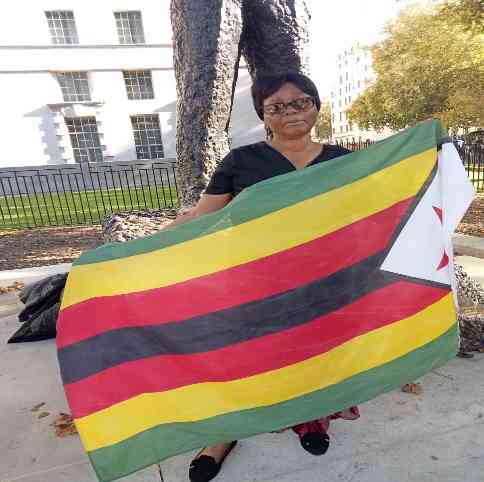
The recent visit of Zimbabwe’s First Lady, Auxilia Mnangagwa, to the United Kingdom for the Flair Summit has sparked significant controversy and criticism. While such international engagements are often intended to promote diplomacy and development, this trip has raised concerns about its appropriateness, financial implications, and the broader message it sends amid Zimbabwe’s deepening economic and social crises.
This article examines the negative impact of her visit, focusing on issues of wasteful expenditure, poor timing, and the neglect of pressing domestic challenges. 1. Wasteful Expenditure in a Struggling Economy Zimbabwe is currently grappling with severe economic hardships, including hyperinflation, currency instability, and widespread unemployment. The government has repeatedly pleaded for austerity measures, yet the First Lady’s trip to the UK—likely funded by state resources—represents a glaring contradiction. The cost of international travel, accommodation, and security for such high-profile delegations is exorbitant, especially when millions of Zimbabweans are struggling to afford basic necessities.
Given that Zimbabwe relies on foreign aid and loans to stabilize its economy, such extravagant spending by government officials undermines public trust and reinforces perceptions of elite privilege. Critics argue that these funds could have been better allocated to healthcare, education, or social welfare programs that directly benefit ordinary citizens.
2. Poor Timing Amid Domestic CrisesThe First Lady’s trip came at a time when Zimbabwe faces multiple crises, including a collapsing healthcare system, food insecurity, and political tensions. Hospitals lack essential medicines, and doctors frequently go on strike over poor working conditions. Meanwhile, rural communities suffer from drought and food shortages, with many relying on humanitarian aid.
In this context, the First Lady’s decision to attend a foreign summit—ostensibly focused on women’s empowerment—appears tone-deaf. While women’s issues are important, many Zimbabwean women are more concerned with survival than high-profile international engagements. The trip sends a message that the political elite are out of touch with the daily struggles of ordinary citizens.
3. Undermining Zimbabwe’s International Image Zimbabwe’s government, led by President Emmerson Mnangagwa, has been accused of human rights abuses, electoral fraud, and corruption. The First Lady’s high-profile visit to the UK—a country that has frequently criticized Zimbabwe’s governance—risks further damaging the nation’s reputation. Instead of addressing these concerns, the trip could be perceived as an attempt to whitewash the regime’s image rather than enact meaningful reforms.
Moreover, given the UK’s strained relations with Zimbabwe due to sanctions and political disagreements, the First Lady’s presence at such an event could be seen as hypocritical. If the goal was to improve diplomatic ties, a more low-key, policy-driven approach would have been more effective than a high-cost publicity stunt.
4. Neglect of Local Empowerment InitiativesWhile the Flair Summit promotes women’s leadership and entrepreneurship, critics argue that Auxilia Mnangagwa’s attendance does little to address the systemic barriers Zimbabwean women face. Instead of traveling abroad, the First Lady could have focused on local initiatives, such as supporting female entrepreneurs, improving maternal healthcare, or advocating for policy changes to combat gender-based violence. Zimbabwe has numerous grassroots women’s organizations that lack funding and government support. By prioritizing an international summit over domestic action, the First Lady missed an opportunity to make a tangible difference in the lives of Zimbabwean women.
- Zim needs committed leaders to escape political, economic quicksands
- Chicken Inn knockout Harare City
- Ziyambi’s Gukurahundi remarks revealing
- Ngezi stunned by 10-man Herentals in Chibuku Cup
Keep Reading
Auxilia Mnangagwa’s visit to the UK for the Flair Summit has had several negative repercussions. It highlights the government’s misplaced priorities, wasteful spending, and detachment from the realities of ordinary Zimbabweans. At a time when the country faces severe economic and social challenges, such trips only deepen public frustration and erode confidence in leadership. If the First Lady genuinely seeks to empower women, she should start by addressing Zimbabwe’s pressing issues rather than engaging in costly international trips that yield little benefit for the nation.










